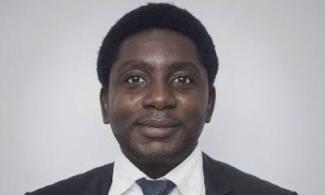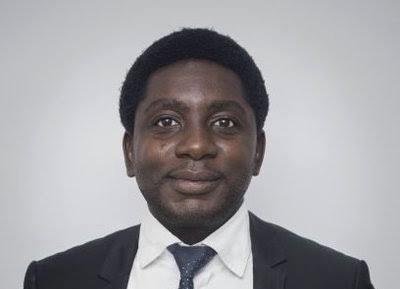
Sadly, this is what the court system in Nigeria is, save for the physical murder, arbitrary arrests and illegal detention, extortion at gun point, etc. But in effect, it is actually the same, if not worse.
After years of outcries and calls for the notorious Special Anti-robbery Squad (SARS) to be scrapped, with the rogue outfit purportedly shut down for the fourth time this year, a final showdown weeks ago brought matters to ahead leading to the fatalities of scores with the murder of unarmed, organised, civil protesters at the Lekki tollgate on 20 October 2020.
SARS (which is still lowkey operational, not entirely scrapped as claimed) is a metaphor for Nigeria’s dysfunction characterised by bad governance, gross impunity and lawlessness, unprofessionalism and incompetence, unbridled corruption, low IQ and mental retardation, and everything one would never expect of a police unit, much less the policing system of any real country. Sadly, this is what the court system in Nigeria is, save for the physical murder, arbitrary arrests and illegal detention, extortion at gun point, etc. But in effect, it is actually the same, if not worse.
The Nigerian court system is slow, archaic, and certainly not designed or intended for the everyday Nigerian. It is more a court of law than a court of justice.
It is expensive and not accessible. Aside from having to pay for the services of lawyers, everything else is paid for, both for legitimate and under-the-table payments, even for things ordered by the the court itself. The other day, at the Federal High Court, Abuja after a matter was adjourned and the court ordered for a hearing notice to be served to the other parties notify them of the new date, demands were made both to get the hearing notice and to ‘mobilise’ the bailiff to serve it. Asking for money for a hearing notice to be issued (forms already provided, all the officials do is to fill them) was a new low.
This is an insensitive, insular system where court registrars would not deign to send simple 4 naira text messages to reschedule court sittings. Lawyers (senior advocates inclusive) travel all the way, including from out of town (along with the associated costs) only to be told that the court wouldn’t be sitting! Changes in plan that are usually not emergencies or impromptu but known well ahead.

There are all manner of dirty extortionary practices one would least expect from a Temple of Justice. The officials there don’think so. The court is to them just like any other place hustlers use as their grounds to earn a buck. They see nothing sacred about it. It’s normal. A complaint I wrote to the chief registrar of the Federal High Court on corrupt practices I witnessed at the Federal High Court Makurdi, which are in clear breach of what the court itself has made public, since 7 October, hasn’t as much as been acknowledged. I wrote again in reminder and to complain about it a month later, nothing came of it. If my hands weren’t full at this time, the impunity of the chief registrar, Emmanuel Gakko, would have been addressed. But it’s never too late.
I was shocked to a stupour when confronted with the reality at close range, of the Supreme Court of Nigeria, the highest court in the land, which has absolutely no regard for the laws of the land. I made a Freedom of Information (FOI) application to know the status of Martins Alo v Speaker, Ondo House of Assembly, filed since 2018, and got no response at all, whereas the law says it must answered in 3 days or at worst 7 days. Two weeks later I wrote a reminder/complaint letter, again to no avail, eliciting may lawsuit against the Supreme Court and the chief registrar, Hadizatu
Mustapha (FHC/ABJ/CS/1161/2020). No lessons were learnt when I again, made an FOI request on the status of Andrew Osakue v EDOCASA, also filed since 2018, leading to a second lawsuit (FHC/ABJ/CS/1491/2020).
Both are landmark cases challenging the impunity of subnational (state and local) governments denying the people access to public records of their own government. These have not been attended to since 2018, but elitist cases commenced at the lower courts began a year later have gone all the way to the Supreme Court and determined. What does it says about the system?
When I eventually got the replies all I could do was shake my head. The Court there is no uniform standard for referencing its letters, the dispatch date on one of them is a wrong one, they even start sentences with small letters, and others blunders too embarrassing to say. And this is supposed to be the highest court in the land!
Space limits me from going into the practice and conduct of judges that rather tend to hamper the course of justice. Or the system’s deliberate resistance to adopting technology to ease the work and make it more efficient, therefore more timely (as justice delayed is justice denied). Or the seeming disposition of judges waiting for government lawyers to say any foolish thing at all so that they would rule in their favour.
There are institutions set up to regulate society and make it liveable for us all. Leading this category, in my view, is the court system. It is intended to be the last hope of the ‘common man’, but in Nigeria it isn’t so in practical terms. Social media seems the last hope of the everyday citizen. In fact, I’ve seen where the police took to Twitter to report the army! Government officials and agencies have been on each other’s necks repeatedly on social media. It appears social media isn’t the last resort of the everyday person alone. It shouldn’t be so. This dysfunction won’t last forever. Something must eventually give.
Like Omoyele Sowore or not, like #RevolutionNow or not, it will come. The question is how do we prefer it? In 1962, John F. Kennedy, the 35th US president, famously said, ‘Those who make peaceful revolution impossible will make violent revolution inevitable.’ It’s either the court system and entire law enforcement and justice system reforms itself into a decent sector that offers equity, justice, and fairness; real value and timely, or continues being rogue. When the consequences come some day, and they will, none of us will like the outcome.
Sesugh Akume, a public policy analyst wrote from Abuja. He tweets @sesugh_akume, and csn be reached via [email protected].